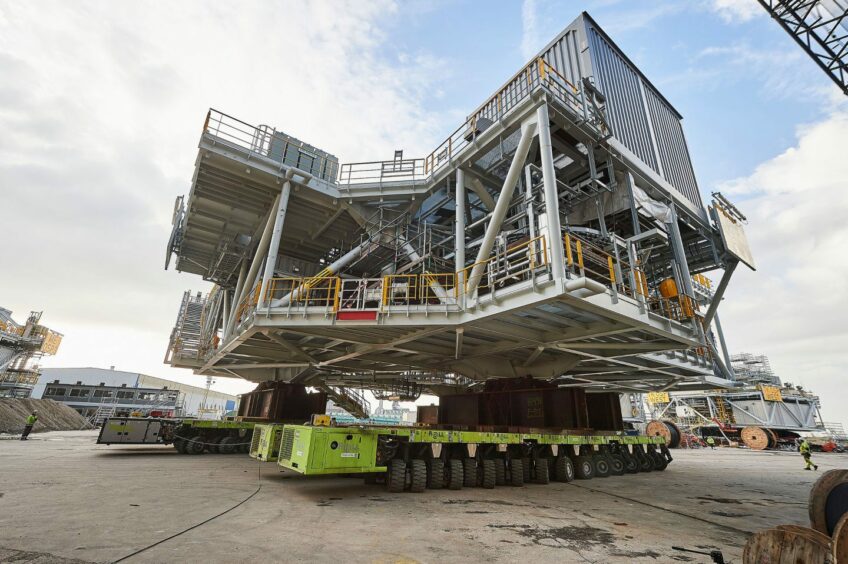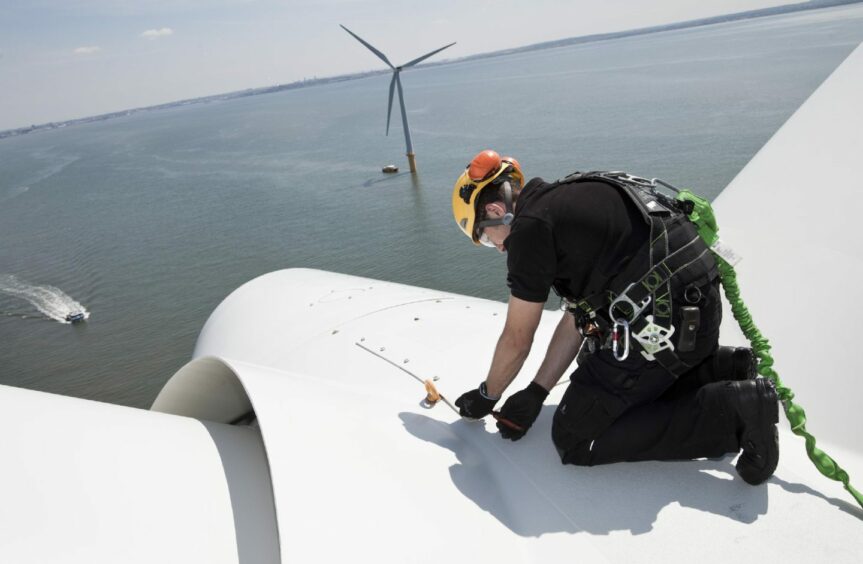There has rightly been a growing recognition to act in the public and private sector to prioritise sustainability and develop solutions to achieve net-zero.
Companies understand that integrating sustainability into their practices is not just about being socially responsible in recognising the climate emergency, but also a way to gain a competitive advantage and future-proof their operations. For example, we have seen significant investments in renewable energy sources such as solar and wind power.
A decarbonised power system is the principal requirement for achieving net-zero.
And access to affordable, resilient and plentiful decarbonised electricity is key to a thriving energy-secure economy.
Scotland’s biggest economic opportunity
Scotland is widely recognised as a global leader in the renewable energy industry. The sector also represents Scotland’s biggest economic opportunity, maximising sustainable energy for businesses and consumers alike.
Fraser of Allander Institute recently calculated the industry in Scotland supports more than £5.6 billion of economic output and in excess of 27,000 jobs.
The sector is undergoing a period of rapid expansion, helped by an abundance of natural resources and supportive government policy direction. This growth in renewable generation capacity is pivotal to supporting wider decarbonisation efforts across heating and transportation.
Going forward, the industry needs a strong supply chain, investment in grid infrastructure and improvements to the planning system to facilitate delivery of these projects. Increases to 2030 and 2045 ambitions for offshore wind are also needed to support supply chain development and push delivery of ScotWind projects, but there is so much more potential.
Sustainability is key to tackling the climate emergency, but it is also a driving factor in other major societal and technological change, including the continuing shift from analogue to digital. Data centres, electronic waste and “data landfill” – where organisations are not using most of the data they store – are all contributors to emissions.
Companies tackling this head-on include CGI, with its data centres meeting the Green Grid data centre efficiency standard and collaborations with other organisations in Scotland and around the world.
CGI is also involved in an exciting research programme called Seeds (Sustainability Exploration Environmental Data Sciences), supported by the United Nations. The programme brings together the world of academia to focus on how technology, research and innovation can create positive environmental and social change.
Sustainability-focused innovation
The adoption of circular economy principles is supporting companies to rethink their product design and manufacturing processes, in order to minimise waste and maximise resource efficiency. Argent Energy, for example, converts waste fats and oils into high grade biodiesel used by vehicles, as well as in heating and power generation.
Vegware, headquartered in Scotland, is the only company in the UK to develop, manufacture and distribute a full range of completely compostable food packaging and catering disposables.
Scotland has a tremendous amount of potential to lead the way when it comes to creating green jobs.”
Underpinning all of these innovations is the workforce. At the heart of a just transition should be a focus on creating green jobs centred on sustainable and low carbon technologies and practices. Jobs such as green building architects, environmental engineers, solar installers and wind turbine technicians.
Scotland has a tremendous amount of potential to lead the way when it comes to creating green jobs. The 2022 PwC Green Jobs Barometer indicated Scotland is creating a higher proportion of new green jobs than any other part of the UK, with such roles more than doubling in the past year.
Green jobs can not only play a critical role in reducing carbon emissions and protecting the environment, but also in creating new economic opportunities and promoting social equity.
One of the key benefits of green jobs is their potential to reduce carbon emissions and mitigate the worst impacts of climate change. By promoting the growth of clean energy industries such as solar and wind, green jobs can help to reduce the reliance on fossil fuels which are a major source of carbon emissions.
Scottish expertise to be showcased in Dubai
In doing so, green jobs can help to accelerate the transition to a low-carbon economy, thereby reducing the impact of climate change and associated risks such as rising sea levels, extreme weather events and loss of biodiversity.
This is the message and ambition the Scottish Chambers of Commerce network will be taking to COP28 in Dubai, where solutions from Scottish businesses will be showcased to contribute to the global conversation on achieving net-zero. In a rapidly changing business landscape, embracing sustainability practices will serve as a vital competitive advantage for Scotland’s economy.
Liz Cameron is chief executive of the Scottish Chambers of Commerce




Conversation